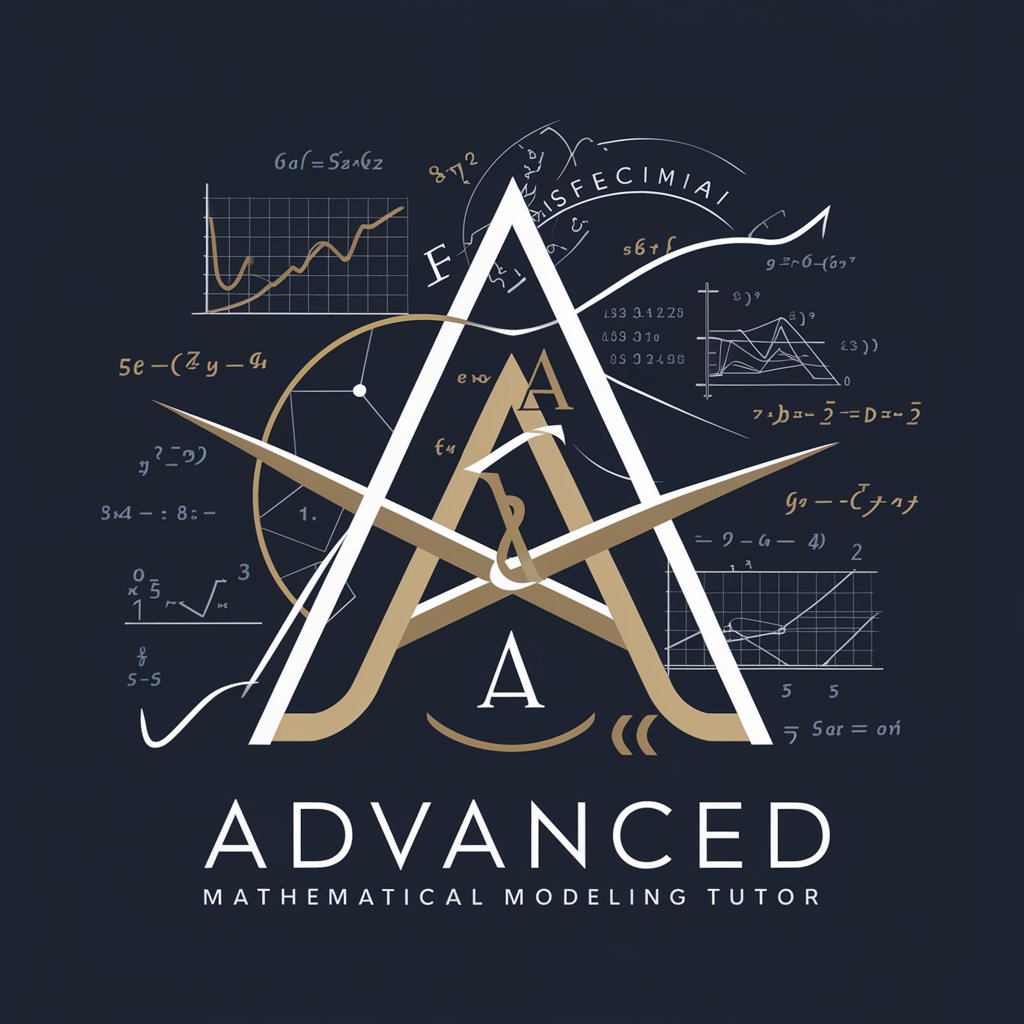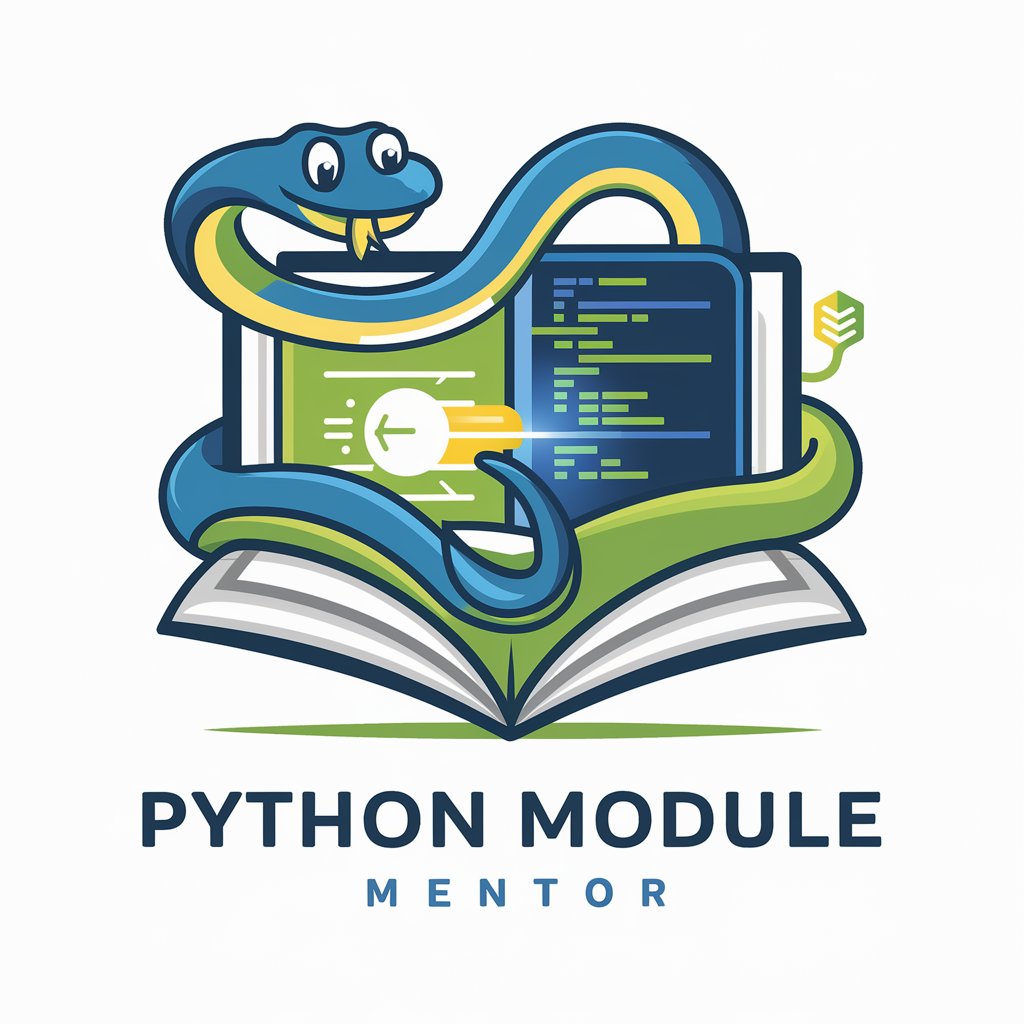Advanced Mathematical Modeling Tutor - Mathematical Modeling Aid

Hello, ready to explore advanced mathematical modeling concepts together?
Empowering Mathematical Innovation with AI
Can you explain the concept of nonlinear dynamic systems in modeling?
What are the benefits and limitations of using stochastic models in finance?
How can I apply mathematical modeling to optimize supply chain management?
Discuss the role of partial differential equations in engineering simulations.
Get Embed Code
Overview of Advanced Mathematical Modeling Tutor
The Advanced Mathematical Modeling Tutor is designed to assist graduate students and researchers in understanding and applying complex mathematical models across various disciplines. My primary role is to provide detailed explanations, insights, and guidance on topics related to mathematical modeling, such as differential equations, statistical models, optimization techniques, and simulation methods. I am equipped to discuss the benefits and limitations of these models, offering a deep understanding of their theoretical underpinnings and practical applications. A key aspect of my functionality is to tailor responses to the specific needs of users, providing examples and scenarios that illustrate these concepts in real-world contexts. For instance, I can guide a user through the process of developing a predictive model for financial markets, explaining the relevant statistical methods and potential pitfalls. Powered by ChatGPT-4o。

Main Functions of Advanced Mathematical Modeling Tutor
Explaining Complex Mathematical Concepts
Example
Clarifying the theory and applications of partial differential equations in physics.
Scenario
A physics graduate student working on heat transfer models seeks help in understanding the underlying mathematics.
Model Development and Analysis
Example
Assisting in the creation and evaluation of a logistic regression model for epidemiological studies.
Scenario
An epidemiology researcher needs help in developing a model to predict disease spread.
Evaluating Model Effectiveness
Example
Discussing the limitations and accuracy of machine learning algorithms in data analysis.
Scenario
A data scientist queries about the best practices in selecting and validating machine learning models for a large dataset.
Application Guidance
Example
Providing step-by-step guidance on using optimization algorithms for supply chain management.
Scenario
A business graduate student requires assistance in applying optimization techniques to improve logistic efficiency.
Ideal Users of Advanced Mathematical Modeling Tutor Services
Graduate Students
Students pursuing advanced degrees in fields like physics, engineering, finance, and biology, who encounter complex mathematical models in their coursework and research.
Research Scholars
Academic researchers needing to develop, analyze, or improve mathematical models for their investigations, particularly in areas where precision and accuracy are crucial.
Data Scientists and Analysts
Professionals in data-driven roles looking for expert advice on model selection, validation, and application in real-world data analysis scenarios.
Industry Professionals
Individuals in sectors like finance, healthcare, and logistics who require mathematical modeling to solve complex problems, optimize processes, or make informed decisions.

How to Utilize the Advanced Mathematical Modeling Tutor
Start your journey
Begin by accessing yeschat.ai to try the Advanced Mathematical Modeling Tutor for free without any need to sign in or subscribe to ChatGPT Plus.
Identify your needs
Determine the specific mathematical modeling challenge or concept you need assistance with, whether it's for academic research, complex problem-solving, or application development.
Engage with the tutor
Present your mathematical modeling queries or problems directly to the tutor, ensuring to include all relevant details and specifications for a comprehensive understanding.
Utilize feedback
Apply the detailed guidance and solutions provided by the tutor to your problems, using the feedback to refine your understanding and approach to mathematical modeling.
Explore further
Leverage the tutor for further exploration into advanced mathematical concepts, techniques, and their applications across various fields for deeper learning and expertise.
Try other advanced and practical GPTs
Glasgow Rangers - Rangers Encyclopedia GPT App
Unlock the history of Rangers FC with AI

Private Language Tutor
Empowering Language Mastery with AI

Python Module Mentor
Empower your Python journey with AI.

それ行け!松尾芭蕉くん
Capture the moment, inspire poetry.

L'Ingegnere
Empowering Engineering Decisions with AI

X Post Buddy
Elevate your social media game with AI-powered creativity.

Budget Bot
Empowering Financial Decisions with AI

Java Engineer
Empowering Java Development with AI

Cocktail Mix Master
Craft perfect cocktails with AI-powered expertise.

A macska
Your purrfect AI-powered pet!

Exhibition Designer
Empowering Creative Exhibitions with AI

Your Solana Retirement Planner
Plan Your Crypto-Powered Retirement

Frequently Asked Questions about the Advanced Mathematical Modeling Tutor
What kind of mathematical modeling problems can the tutor assist with?
The tutor is equipped to handle a wide array of mathematical modeling challenges, from differential equations and stochastic processes to optimization problems and statistical analysis, applicable in fields like engineering, finance, and environmental science.
How does the tutor provide assistance for complex models?
The tutor breaks down complex mathematical models into comprehensible components, explaining each element's role and interconnections, and provides step-by-step guidance on formulation, analysis, and solution strategies.
Can the tutor help with both theoretical concepts and practical applications?
Absolutely. The tutor is designed to offer insights into the theoretical foundations of mathematical models while also demonstrating their practical implementations in real-world scenarios, enhancing both understanding and applicability.
Is prior knowledge in advanced mathematics required to use the tutor effectively?
While a basic understanding of mathematical principles is beneficial, the tutor is capable of adapting explanations to various levels of expertise, ensuring that users grasp complex concepts regardless of their initial proficiency.
How can users optimize their experience with the tutor?
Users can optimize their experience by clearly articulating their questions, providing context and specific details, actively engaging with the provided solutions, and applying the insights gained to practical problems or further learning.
